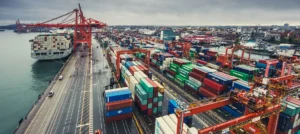He presided over the Council of Ministers and approved the Education Agenda 2020 and the “Tanmia” Strategy 2011 – 2013. Mohammed bin Rashid: Education and Emiratisation are a priority in the work of the government and a national responsibility for all. Bin Rashid Al Maktoum, Vice President and Prime Minister of the UAE and Ruler of Dubai, may God protect him, said that education and Emiratization represent major priorities in the government’s work, and a national responsibility for all, which requires the concertedness and integration of all national initiatives in this regard to achieve the aspirations of the people of the Emirates and provide well-being and a decent living for all members of society. This came while His Highness chaired the Cabinet session held yesterday at the Presidential Palace, in the presence of Lt. General His Highness Sheikh Saif bin Zayed Al Nahyan, Deputy Prime Minister and Minister of the Interior, and His Highness Sheikh Mansour bin Zayed Al Nahyan, Deputy Prime Minister and Minister of Presidential Affairs, where the Council approved the education agenda. Education until the year 2020 and the strategy of the National Human Resources Development and Employment Authority 2011 – 2013. The education agenda until 2020, which was approved by the Council of Ministers, included five main axes that focused on developing students’ academic achievement, developing the school environment, and working to equal educational opportunities among all students, in addition to… To enhance students’ sense of patriotism, and increase the administrative efficiency and effectiveness of the Ministry of Education. The agenda also included ten main goals and a large group of initiatives to achieve them, with the development of implementation plans for each initiative, including a period of time and responsibility. The initiatives included implementing a plan to bridge the gap between public and private education, restructuring education, in addition to improving the professionalism of education and developing systems







